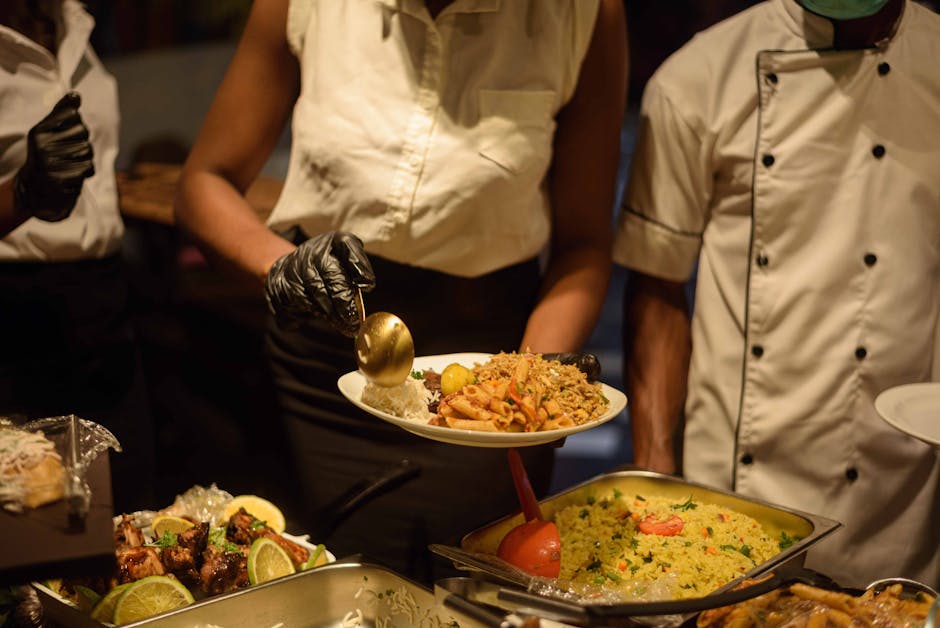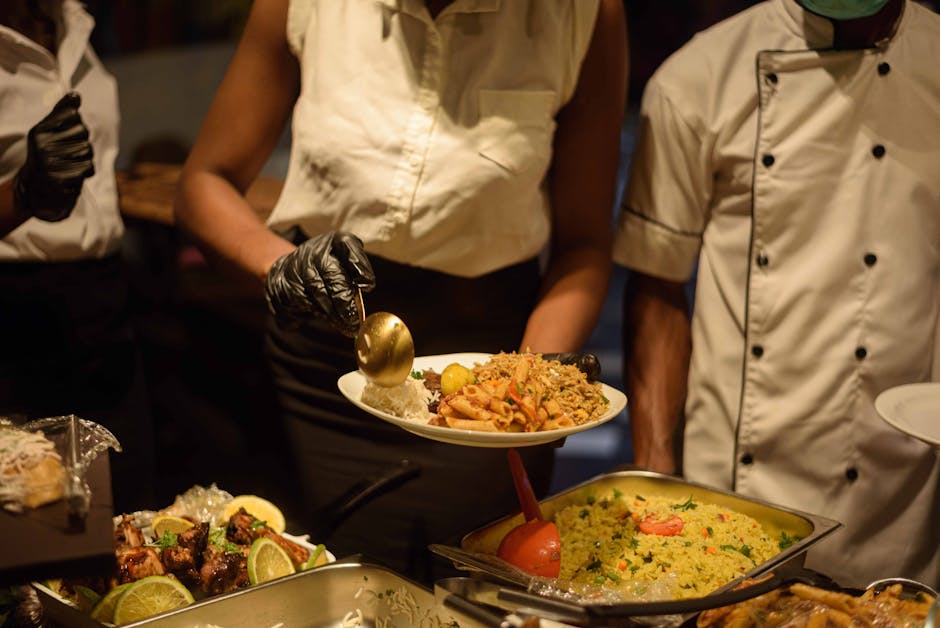Demand for Skilled Kitchen Staff in Saudi Catering
Economic Growth and Vision 2030 Fueling Catering Sector Expansion
Saudi Arabia’s Vision 2030 blueprint is fundamentally transforming the economic landscape. This ambitious plan prioritizes tourism and entertainment, directly increasing the demand for skilled kitchen staff in Saudi catering. Mega-projects like NEOM, the Red Sea Project, and Qiddiya require extensive food service operations. Consequently, catering companies face intense pressure to find qualified chefs, cooks, and kitchen supervisors. The Saudi government’s Vision 2030 initiative specifically targets hospitality sector growth, ensuring long-term demand for culinary talent.
Key Drivers of Kitchen Staff Demand in Saudi Arabia
Several powerful factors converge to create the current staffing crisis. Firstly, rapid population growth and urbanization increase demand for catering services. Secondly, rising disposable incomes fuel consumer spending on dining experiences. Thirdly, major international events and conferences require sophisticated catering solutions. Moreover, the expansion of corporate sectors necessitates office catering services. These drivers collectively create sustained pressure on the Saudi catering labor market.
Specific Skills Shortages in Saudi Kitchen Teams
The skills gap appears most pronounced in specialized culinary roles. Employers particularly seek:
- Executive chefs with international experience
- Sous chefs capable of managing diverse teams
- Specialized cuisine chefs (Italian, Asian, fusion)
- Pastry chefs and bakers
- Kitchen managers with financial acumen
This specialization shortage necessitates targeted recruitment strategies.
Challenges in Recruiting Saudi Kitchen Professionals
Recruiting culinary staff presents unique challenges in the Saudi context. Cultural perceptions about hospitality careers affect local talent acquisition. Additionally, competition from other Gulf countries attracts talent away from Saudi Arabia. Stringent Saudi labor regulations complicate international recruitment processes. Furthermore, high turnover rates plague the industry, especially during initial probation periods. These challenges require sophisticated HR approaches and strategic planning.
Training and Development Solutions for Catering Staff
Progressive catering companies invest heavily in training programs. Firstly, they establish partnerships with culinary schools worldwide. Secondly, they implement mentorship programs pairing junior staff with experienced chefs. Thirdly, they offer certification programs in food safety and specialized cuisines. Moreover, many companies now provide Arabic language training for expatriate chefs. These investments significantly enhance staff capabilities and retention rates.
Compensation Trends for Skilled Kitchen Staff in Saudi Arabia
Competitive compensation packages become crucial in attracting top talent. Currently, salary premiums exist for:
- Chefs with international hotel experience
- Specialists in high-demand cuisines
- Staff with food safety certifications
- Arabic-speaking kitchen managers
Additionally, companies offer enhanced benefits including housing allowances, transportation, and annual flight tickets. These packages help address the skilled kitchen staff shortage in Saudi catering.
Impact of Saudi Localization Policies on Kitchen Recruitment
Saudization policies significantly influence catering recruitment strategies. The Nitaqat program mandates specific Saudi national employment quotas across sectors. Consequently, catering companies must balance localization requirements with specialized skill needs. Many organizations develop comprehensive Saudization plans including:
- Culinary training programs for Saudi nationals
- Leadership development initiatives
- Career path mapping for local talent
These efforts gradually increase Saudi participation in culinary professions.
Technology’s Role in Addressing Kitchen Staffing Challenges
Innovative technologies help optimize kitchen operations amid staffing constraints. Automated inventory systems reduce manual labor requirements. Additionally, recipe management software standardizes processes and reduces skill dependencies. Furthermore, kitchen analytics platforms identify efficiency opportunities. These technologies augment existing staff capabilities while mitigating recruitment challenges.
Future Outlook for Saudi Catering Employment
The demand for skilled kitchen staff in Saudi catering will continue growing throughout the decade. Vision 2030 projects will require thousands of additional culinary professionals. Furthermore, evolving consumer preferences will drive demand for specialized culinary skills. Companies that invest in training, technology, and competitive compensation will gain significant advantages. Strategic workforce planning becomes essential for sustainable growth in this dynamic market.
Frequently Asked Questions
What is driving the demand for skilled kitchen staff in Saudi Arabia?
Vision 2030 projects, population growth, tourism expansion, and economic diversification collectively drive unprecedented demand for culinary professionals across Saudi Arabia’s catering sector.
Which kitchen positions are most in demand in Saudi catering?
Executive chefs, specialized cuisine chefs, pastry chefs, and kitchen managers with international experience face particularly high demand in the current market.
How does Saudization affect kitchen staff recruitment?
Nitaqat policies require minimum Saudi national employment percentages, compelling catering companies to develop comprehensive training and localization strategies for culinary roles.
What compensation packages attract skilled kitchen staff?
Competitive tax-free salaries, housing allowances, transportation, annual flights, and professional development opportunities constitute attractive packages for culinary professionals.
Are there specific certifications valued in Saudi catering?
Food safety certifications (HACCP, ServSafe), international culinary diplomas, and specialized cuisine certifications significantly enhance candidate marketability in Saudi Arabia.
Conclusion: Strategic Response to Kitchen Staffing Demands
In conclusion, the demand for skilled kitchen staff in Saudi catering represents both challenge and opportunity. Vision 2030 continues driving unprecedented sector growth while creating intense competition for culinary talent. Success requires multifaceted strategies including competitive compensation, targeted training, technological integration, and thoughtful localization. Furthermore, companies must develop robust recruitment pipelines and retention programs. Ultimately, those who strategically address these staffing challenges will lead Saudi Arabia’s culinary transformation. Contact us today to develop your customized kitchen staffing solution and access our comprehensive HR resources for the catering sector.




